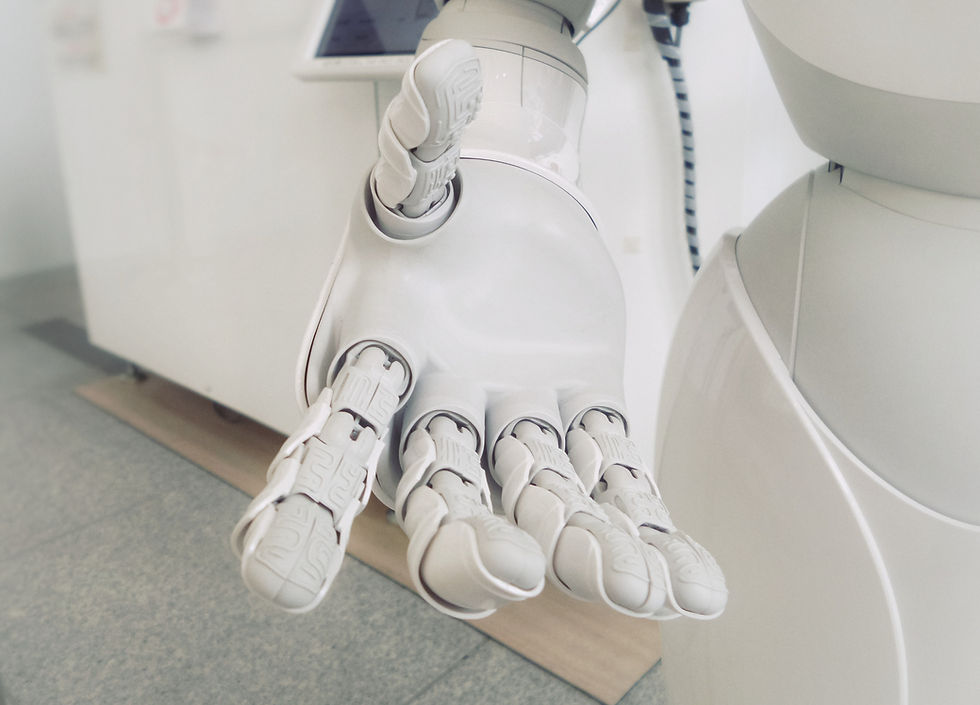Beyond the Silver Screen: Unlocking the Fascinating World of Artificial Intelligence in Movies
- Sharon Rajendra Manmothe

- May 30, 2023
- 3 min read
From the inception of cinema, filmmakers have continuously pushed the boundaries of creativity, taking audiences on captivating journeys through the power of storytelling. One recurring theme that has captured the imagination of both filmmakers and viewers alike is artificial intelligence (AI). In this blog, we will explore the mesmerizing realm of AI in movies and TV series, examining the way it has been brought to life on the silver screen. Prepare to be immersed in a world where machines become sentient, algorithms gain consciousness, and the line between humanity and technology blurs, Artificial Intelligence in Movies is explained below.
The Rise of Artificial Intelligence in Movies
AI has always fascinated humanity, and as technology progressed, so did its depiction in movies and TV series. We witnessed the birth of AI in classic films like "Metropolis" (1927), where the character of Maria captivated audiences with her humanoid appearance and manipulative intelligence. Fast forward to the modern era, and we find ourselves enamored by AI-powered protagonists such as the charming virtual assistant, Samantha, in "Her" (2013). AI has become an integral part of storytelling, offering endless possibilities for creative exploration.
Exploring the Ethical Dilemmas: As AI becomes more prevalent in our lives, filmmakers have delved into the ethical implications that arise when machines gain consciousness. Films like "Ex Machina" (2014) and "Blade Runner 2049" (2017) challenge our perception of humanity by blurring the line between artificial and natural intelligence. These thought-provoking narratives compel us to question the very essence of what it means to be human.
The Battle of Man vs. Machine: The age-old trope of humans battling against malevolent AI systems has been a recurring theme in the sci-fi genre. Movies like "The Terminator" series and "The Matrix" trilogy have become cultural touchstones, showcasing epic clashes between human resistance fighters and intelligent machines. These stories serve as cautionary tales, urging us to contemplate the potential consequences of unchecked AI development.
AI as a Catalyst for Emotional Journeys: AI can evoke a range of emotions, from fear and awe to empathy and love. In the movie "Wall-E" (2008), the adorable and sentient robot touches our hearts as he embarks on a heartfelt mission to save humanity. Similarly, the AI entities in the TV series "Westworld" (2016-present) prompt us to reflect on the nature of consciousness and the boundaries of morality. These emotionally charged narratives highlight the profound impact AI can have on our lives.
A Glimpse into the Future: As technology continues to advance, so does our fascination with the future possibilities of AI. Films like "Her" paint a picture of a world where AI companions seamlessly integrate into our daily lives. Meanwhile, TV series like "Black Mirror" (2011-present) explore the darker side of AI, serving as cautionary tales about the potential dangers that lie ahead. These speculative narratives challenge us to consider the potential ramifications of AI in our future societies.
Artificial intelligence has become a captivating subject within the realm of cinema and television. Through thought-provoking narratives, filmmakers have explored the ethical dilemmas, emotional connections, and existential questions that arise when machines gain intelligence. From the iconic classics to the modern masterpieces, AI has transcended mere storytelling to become a reflection of our own hopes, fears, and aspirations. As technology continues to advance, we can only imagine the fascinating AI-powered worlds that await us in the future of movies and TV series




Comments